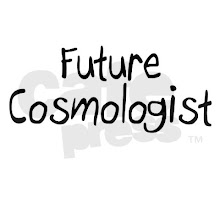Arthur Schuster to Introduce Antimatter :
1- The term antimatter was first used by Arthur Schuster in two rather whimsical letters to Nature in 1898, in which he coined the term.
9- Antimatter is just nothing but a mere copy of ordinary matter we see with opposite charges.
2- He hypothesized antiatoms, as well as whole antimatter solar systems, and discussed the possibility of matter and antimatter annihilating each other.
3- Schuster's ideas were not a serious theoretical proposal, merely speculation, and like the previous ideas, differed from the modern concept of antimatter in that it possessed negative gravity .
The Modern Theory :
4- The modern theory of antimatter began in 1928, with a paper by Paul Dirac.
5- Dirac realised that his relativistic version of the Schrödinger wave equation for electrons predicted the possibility of antielectrons.
6- These were discovered by Carl D. Anderson in 1932 and named positrons (a contraction of "positive electrons").
7- Although Dirac did not himself use the term antimatter, its use follows on naturally enough from antielectrons, antiprotons, etc.
8- A complete periodic table of antimatter was envisaged by Charles Janet in 1929
What is Antimatter ?
What is Antimatter ?
9- Antimatter is just nothing but a mere copy of ordinary matter we see with opposite charges.
10- For every type of matter particle we've found, there also exists a corresponding antimatter particle, or antiparticle.
How it looks like ?
11- Antiparticles look and behave just like their corresponding matter particles, except they have opposite charges.
12- For instance, a proton is electrically positive whereas an anti-proton is electrically negative.
How it behaves ?
13- It behaves just the same as matter —No difference
14- Gravity affects matter and antimatter the same way because gravity is not a charged property.
15- Matter particle has the same mass as its antiparticle.
How it looks like ?
11- Antiparticles look and behave just like their corresponding matter particles, except they have opposite charges.
12- For instance, a proton is electrically positive whereas an anti-proton is electrically negative.
How it behaves ?
13- It behaves just the same as matter —No difference
14- Gravity affects matter and antimatter the same way because gravity is not a charged property.
15- Matter particle has the same mass as its antiparticle.













